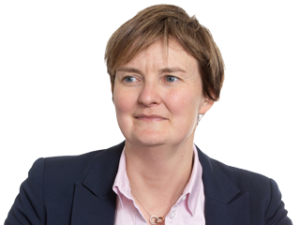When starting a new venture it is important to be aware of, and get advice where necessary, on tax.
Tax on business profits – corporation tax, income tax and dividends
The tax on business profits is dictated by your choice of business structure.
If the business is unincorporated (partnership or sole trader), the business itself is not taxable. Instead, the tax is borne by the business owners who, as individuals, pay income tax and national insurance.
Limited companies are subject to Corporation Tax on their profits. Corporation Tax is calculated after business expenses but before dividends and currently (in 2025/26), it is charged at 25%.
If you are a company shareholder, you can pay yourself in dividends. These are paid after Corporation Tax from a company, so they are taxed at slightly different rates to other income types. The rate depends on your income tax band:
Basic rate taxpayer (£12,571 to £50,270) |
8.75% |
Higher rate taxpayer (£50,271 to £125,140) |
33.75% |
Additional rate taxpayer (Over £125,140) |
39.35% |
When a salary is taken from a company, either by the owner or employees, it is subject to PAYE and National Insurance.
Business profits
All businesses, whether incorporated or unincorporated, calculate their profits in accordance with Generally Accepted Accounting Practice (GAAP).
Both incorporated and unincorporated businesses are taxable on their profits. However, bear in mind that the accounting profits of a business are rarely the same as the taxable profits.
- Accounting profit is the amount left over after deducting the explicit costs of running the business.
- Taxable profit is the total trading profit after deducting allowable expenditure and adding back disallowable expenses such as (among others) entertainment, depreciation and penalties.
When calculating the taxable trading profit, there are differences between revenue expenses and capital expenditure. Revenue expenses are deductible for tax purposes, whereas capital expenditure is not.
When a business has qualifying capital expenditure — payments for equipment, machinery etc. — it can claim capital allowances. This includes an annual investment allowance (AIA), which covers expenditure of up to £1 million on certain plant and machinery.
On expenditure outside of the AIA, a business can claim writing down allowances.
In the early stages of a business, capital expenditure can be high, yet not all these costs are deductible when calculating taxable profit. While the AIA is very generous, only certain expenditure qualifies for capital allowances and the AIA.
PAYE
Once a business has employees, it must set up a PAYE scheme with HMRC.
Any salary paid to employees is subject to PAYE and National Insurance. PAYE requires the company to deduct tax and National Insurance from the salary and pay them directly to HMRC.
Automatic enrolment
Since 2008, every employer in the UK must enrol eligible staff into a workplace pension scheme and contribute towards the scheme.
This is called automatic enrolment. Even if your business only has one employee (which could be yourself), you will have duties under automatic enrolment.
National Insurance
For employees in limited companies, National Insurance will be paid through PAYE.
In 2025/26, businesses pay 15% National Insurance on all employee earnings above £5,000. However, in 2014 the Employment Allowance was introduced to help small businesses recruit more staff. It gives a reduction of up to £10,500 on National Insurance liability.
When it comes to National Insurance, there is a difference between employees and the owners of unincorporated businesses.
As above, an incorporated business pays Corporation Tax on profits. Shareholders receive dividends which are not subject to National Insurance. If the directors receive a salary, this is treated like any salary paid to an employee, although the National Insurance is calculated on a cumulative basis.
In contrast, the owners of unincorporated businesses are taxable directly on the profits. As well as Income Tax, they also pay National Insurance — Class 2 National Insurance at the rate of £3.50 per week, and Class 4 on the profits.
Profit band
Up to £12,570 |
Nil |
£12,570 – £50,270 |
6% |
Over £50,270 |
2% |
There is no employer National Insurance for the owners of unincorporated businesses, unless employing other individuals.
VAT
VAT is added to most goods and services. The standard rate of VAT is currently 20%, although some items have a reduced rate of 5%.
Once a business is VAT registered, it must charge VAT on top of its prices, thus making their products and services more expensive for non-VAT registered customers.
Businesses must register for VAT when their turnover reaches the registration threshold (currently £90,000). However, a business can register sooner to recover VAT on their expenses.
Once registered, businesses must complete quarterly VAT returns, although in certain circumstances, there may be the option to do this annually.
VAT registered businesses must also comply with the Making Tax Digital (MTD) rules. They must keep electronic records and make VAT submissions using MTD compatible software.



